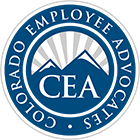Colorado employees and prospective employees are protected by various anti-discrimination laws. The U.S. Equal Employment Opportunity Commission is at the forefront of implementing and enforcing these laws. Despite that, illegal actions continue and people are negatively impacted professionally and personally because of it.
As times change and employers are increasingly held accountable for illegal behaviors, the EEOC strives to make clear its plans for enforcement in coming years. Recently, it issued a Strategic Enforcement Plan to be put in effect starting in 2024 and continuing through 2028. People who might have had their rights violated need to be aware of how the EEOC mandates can help them if they consider filing a claim.
What does the EEOC plan to do to help workers?
According to the plan, the EEOC will focus on groups who are frequently targeted for discrimination: those in the LGBTQ community, religious minorities and people discriminated against because of their race or ethnicity. It will also specifically try to help those who do not know their employment rights or are intimidated to speak out.
In addition, the Pregnant Workers Fairness Act will shield pregnant workers while those who have recently gone through childbirth or have medical conditions connected to it will have protections.
Certain industries are lacking with hiring people of color and women. That includes finance, technology, engineering and construction. This will be addressed. Artificial intelligence is believed to hinder people’s job searches and their ability to get interviews and opportunities. The EEOC plans to target this issue. Finally, it will try and reduce non-disclosure agreements, waivers and other tactics employers use to avoid litigation.
Workers need to be aware of their rights
People who have been subjected to employment law violations and faced discriminatory behavior are frequently unsure of their options. They might not even be cognizant that a legal violation took place at all. In some instances, they know they were discriminated against in some way, but they are worried about repercussions for complaining about it.
Employment laws are in place to protect workers and those who are looking for work. Discrimination continues to be a problem despite greater attention paid to it in general and the EEOC making sure it implements strategies to counteract it.
This could involve failing to get a job interview, not getting a job a person was qualified for, not getting a promotion, hearing offensive statements on the job, being wrongfully terminated or being retaliated against. Regardless of the type of work a person does, they can be subjected to this type of treatment. They do not need to simply accept it. When there is a belief that discrimination has taken place, it is important to know how to pursue a case.

